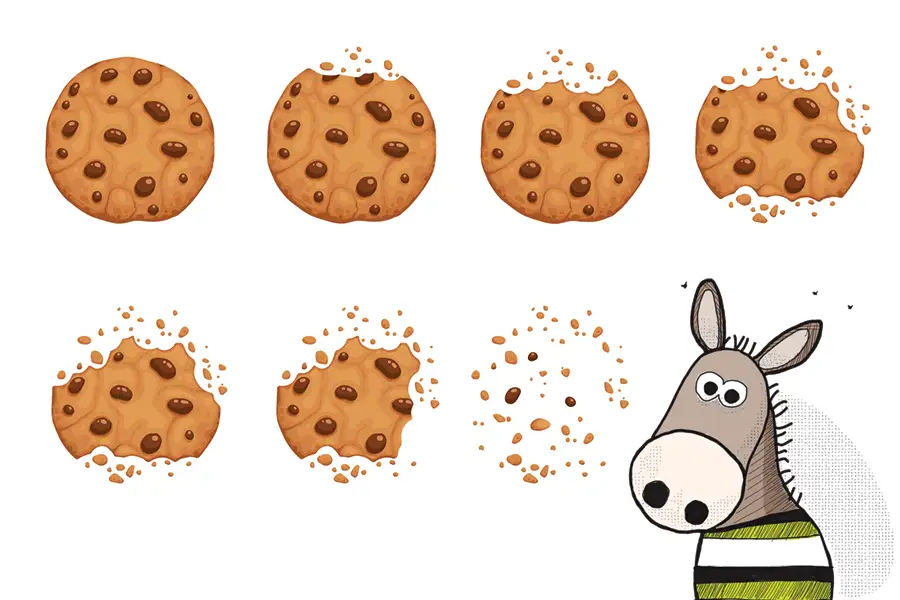EDU Notes

The digital marketing landscape is on the brink of a significant transformation. As we edge closer to a cookie-less future, it’s crucial to understand what this means for performance marketing and how businesses can adapt to maintain their edge.
Google’s decision to phase out third-party cookies on its Chrome browser, by the second half of 2025 (something that other browsers like Safari and Firefox have already completed), marks a pivotal change in digital marketing. This move stems from growing concerns over consumer privacy and the political push towards more stringent data protection regulations. With cookies playing a fundamental role in tracking user behavior across browsers and platforms and targeting ads, their removal forces marketers to rethink their strategies.
The phase-out of cookies is primarily driven by privacy concerns. Users are increasingly uncomfortable with being tracked across the web, and policymakers are responding with tighter regulations. By eliminating third-party cookies, Google, Apple, Moz etc. aims to address these concerns, fostering a more privacy-centric browsing experience.
UPDATE: On July 22nd 2024 Google announced it no longer planned to phase out third-party tracking cookies from its Chrome web browser. It will instead introduce a new prompt for users to choose how they want to be tracked across Google’s search products.
This is the 4th or 5th change of mind, so better keep an eye on it. Also, not everyone uses Chrome. Safari, Firefox and other browsers have already implemented first-party only cookies. Basically if you want to be compliant with GDPR or other Privacy laws around the world you need to control what data you’re sending to Google, GA4, Facebook, Hubspot and so on.
Without cookies, marketers lose a valuable tool for gathering detailed user data. This change challenges traditional methods of audience segmentation and targeting. Marketers must now pivot to first-party data—information collected directly from customers through interactions on their own websites and apps. This shift requires robust data collection frameworks and an emphasis on building direct customer relationships.
Cookies have enabled personalized ad placements by tracking user behavior across different sites. In their absence, alternative technologies like Google’s Privacy Sandbox propose using aggregated data to deliver relevant ads while preserving user anonymity. Marketers will need to explore these new tools and refine their ad strategies to maintain personalization without violating privacy norms.
Re-marketing relies heavily on tracking user behavior to re-engage visitors who have shown interest in products but haven’t converted. With cookies gone, this strategy needs a revamp. Marketers must develop new techniques, such as leveraging email marketing and loyalty programs, to keep potential customers engaged and drive conversions.
Performance marketing, characterized by its reliance on precise tracking and measurable outcomes, faces unique challenges in a cookieless world:
Accurate attribution of marketing efforts becomes more complex without cookies. Traditional models that track the user journey across multiple touchpoints will need replacement by more sophisticated attribution models using first-party data and predictive analytics. Businesses must invest in advanced analytics tools to continue measuring the effectiveness of their campaigns accurately.
Marketers will need to scrutinize their ad spend more closely. Without cookies, the precision of targeting diminishes, potentially leading to higher costs for lower returns. Utilizing platforms that offer contextual targeting—where ads are placed based on the content of the webpage rather than user behavior—can help maintain ad spend efficiency.
Emerging technologies, like AI-driven models, will play a crucial role in this new landscape. AI can help analyze large datasets to identify trends and predict user behavior, offering a viable alternative to cookie-based tracking. While marketers must embrace these tools to stay competitive, they will need the help of experts in ML, data science, and development.
Adapting to a cookie-less future requires proactive measures and strategic partnerships. Here’s how Digital Giraffes can help your business navigate these changes:
Digital Giraffes specializes in helping businesses build robust first-party data strategies. By optimizing data collection techniques and enhancing user engagement, we ensure you gather valuable insights directly from your audience.
Digital Giraffes understands the importance of a diversified marketing approach. We integrate SEO, paid media, social advertising, and content marketing to create cohesive campaigns that drive results without relying on cookies.
As we approach a cookie-less future, businesses must adapt to new ways of collecting data and targeting audiences. The transition, while challenging, also presents opportunities to innovate and build stronger customer relationships. With Digital Giraffes as your partner, you can confidently navigate these changes, leveraging advanced tools and strategies to ensure your marketing efforts continue to thrive. Contact us today to stay ahead in the evolving digital landscape.
Got questions?
Check out our FAQ below
Digital Giraffes offers expertise in developing first-party data strategies, leveraging AI and machine learning, and implementing omnichannel marketing approaches to ensure continued success in performance marketing without reliance on cookies.
For further assistance and to stay ahead in the evolving digital landscape, contact DGagency for tailored solutions and expert guidance.
Fill out the form and we’ll get in touch with you! Your data is safe with us and will be used only for contacting you.

MARKETING & PR AGENCY
If you're looking for a digital marketing agency with experience and an understanding of measurable marketing —data that yields insights for decision making— and a love for leading edge technologies, we can help you achieve your growth goals!
Services
Links
Discover
Legal